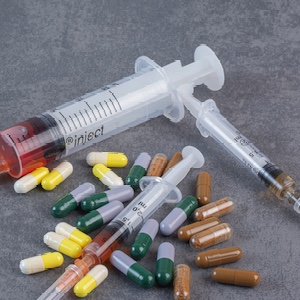 Smart Citations
Smart CitationsSee how this article has been cited at scite.ai
scite shows how a scientific paper has been cited by providing the context of the citation, a classification describing whether it supports, mentions, or contrasts the cited claim, and a label indicating in which section the citation was made.
Factors affecting the treatment outcome of injection based shorter MDR-TB regimen at a referral centre in India
Rifampicin-resistant/multidrug-resistant tuberculosis (RR/MDR-TB) is a significant burden on global tuberculosis (TB) prevention and eradication efforts. MDR-TB can be treated, but it is expensive, takes a long time (typically two years) and contains potentially toxic drugs. Under certain conditions, the WHO recommends standard regimens lasting 9 to 11 months rather than individual regimens lasting at least 18-20 months. The current study sought to identify factors associated with treatment outcomes in RR/MDR-TB patients receiving an injection-based regimen for 9-11 months. This ambispective (prospective and retrospective) observational study was conducted at a tertiary tuberculosis institute in New Delhi, India. Between February 2021 and March 2022, patients with RR/MDR-pulmonary TB who received an injection-based shorter regimen were enrolled. Factors related to treatment outcomes were investigated and compared in patients who had a successful outcome versus those who did not. A total of 55 patients were enrolled, with 50.91% being successful (cured/treatment completed) and 49.09% failing (including failure, lost to follow up, death, and regimen change). The following factors were significantly associated with the unsuccessful outcome, according to univariate analysis: BMI (<18.5 kg/m2), anaemia, previous anti-TB treatment, bilateral chest X-ray involvement, and far advanced disease on chest X-ray. BMI (<18.5 kg/m2), anaemia, and far advanced disease on chest X-ray were all significantly associated with mortality. Anaemia was associated with an unsuccessful outcome (p=0.049) and mortality (p=0.048) in the multiple logistic regression analysis. Early treatment initiation, improved nutrition and anaemia, and regular monitoring can all improve RR/MDR-TB patients’ outcomes and prognoses.
How to Cite

This work is licensed under a Creative Commons Attribution-NonCommercial 4.0 International License.
PAGEPress has chosen to apply the Creative Commons Attribution NonCommercial 4.0 International License (CC BY-NC 4.0) to all manuscripts to be published.

 https://doi.org/10.4081/monaldi.2022.2396
https://doi.org/10.4081/monaldi.2022.2396




